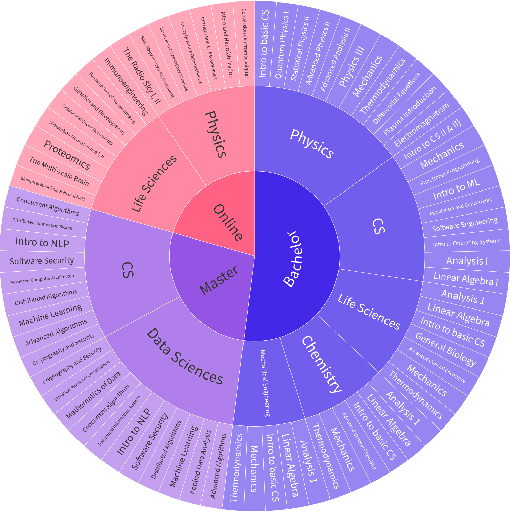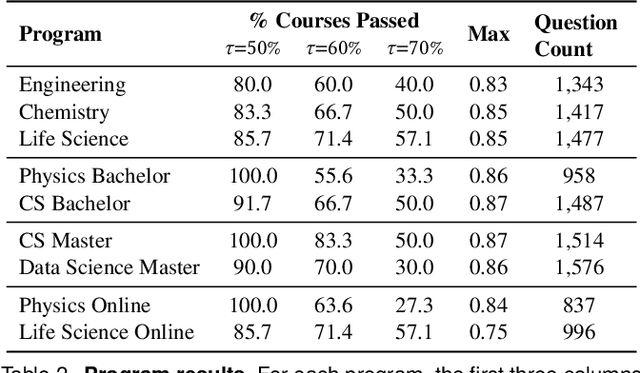Viktor Kuncak
Could ChatGPT get an Engineering Degree? Evaluating Higher Education Vulnerability to AI Assistants
Aug 07, 2024



Abstract:AI assistants are being increasingly used by students enrolled in higher education institutions. While these tools provide opportunities for improved teaching and education, they also pose significant challenges for assessment and learning outcomes. We conceptualize these challenges through the lens of vulnerability, the potential for university assessments and learning outcomes to be impacted by student use of generative AI. We investigate the potential scale of this vulnerability by measuring the degree to which AI assistants can complete assessment questions in standard university-level STEM courses. Specifically, we compile a novel dataset of textual assessment questions from 50 courses at EPFL and evaluate whether two AI assistants, GPT-3.5 and GPT-4 can adequately answer these questions. We use eight prompting strategies to produce responses and find that GPT-4 answers an average of 65.8% of questions correctly, and can even produce the correct answer across at least one prompting strategy for 85.1% of questions. When grouping courses in our dataset by degree program, these systems already pass non-project assessments of large numbers of core courses in various degree programs, posing risks to higher education accreditation that will be amplified as these models improve. Our results call for revising program-level assessment design in higher education in light of advances in generative AI.
Software Verification and Graph Similarity for Automated Evaluation of Students' Assignments
Jun 29, 2012



Abstract:In this paper we promote introducing software verification and control flow graph similarity measurement in automated evaluation of students' programs. We present a new grading framework that merges results obtained by combination of these two approaches with results obtained by automated testing, leading to improved quality and precision of automated grading. These two approaches are also useful in providing a comprehensible feedback that can help students to improve the quality of their programs We also present our corresponding tools that are publicly available and open source. The tools are based on LLVM low-level intermediate code representation, so they could be applied to a number of programming languages. Experimental evaluation of the proposed grading framework is performed on a corpus of university students' programs written in programming language C. Results of the experiments show that automatically generated grades are highly correlated with manually determined grades suggesting that the presented tools can find real-world applications in studying and grading.
 Add to Chrome
Add to Chrome Add to Firefox
Add to Firefox Add to Edge
Add to Edge